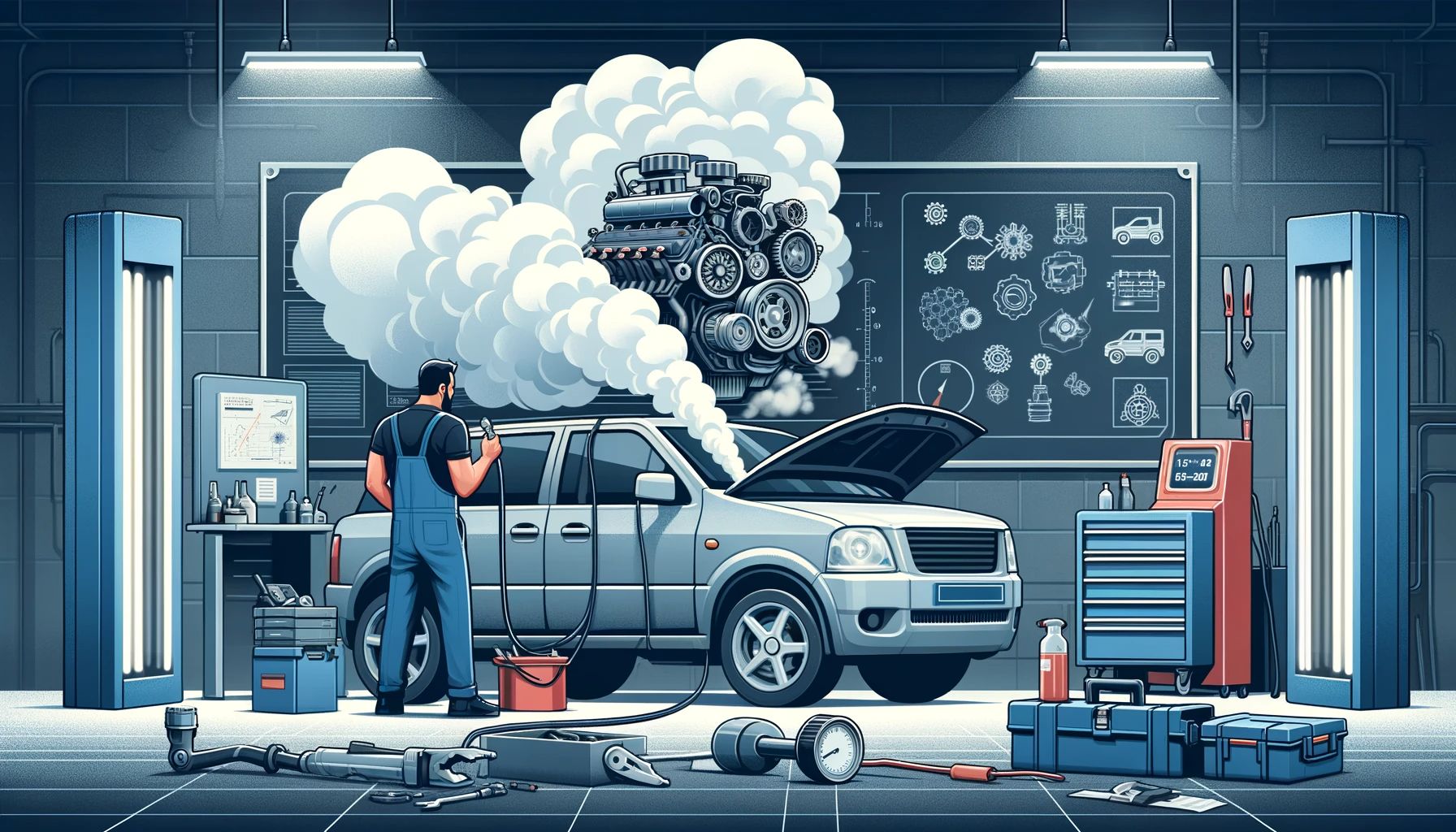Understanding White Smoke in Diesel Engines: Causes and Solutions

As an auto mechanic, one common issue I often encounter with diesel engines is the emission of white smoke during acceleration. This phenomenon can be concerning for vehicle owners. In this article, I'll explain the various causes of white smoke from diesel engines when accelerating and offer insights into how these issues can be addressed.
Causes of White Smoke in Diesel Engines
- Unburnt Fuel: The most common reason for white smoke is unburnt fuel passing through the engine without being properly combusted. This can occur when the engine fails to reach adequate temperatures for efficient fuel combustion.
- Faulty Injectors or Injection Timing: Improperly functioning injectors can spray fuel unevenly, leading to poor combustion. Similarly, incorrect injection timing can result in fuel being injected at the wrong time, causing incomplete combustion.
- Low Cylinder Compression: Diesel engines rely on high compression to ignite the fuel. Low compression, possibly due to worn-out piston rings or cylinder linings, can lead to poor combustion and white smoke.
- Coolant Leak: White smoke can also indicate a coolant leak into the combustion chamber. This usually happens due to a cracked or warped cylinder head, a faulty head gasket, or a cracked engine block.
- Condensation: In colder climates, condensation in the exhaust system can create a white smoke appearance. This is generally harmless and should clear up as the engine warms up.
Diagnostic Approach
- Engine Inspection: A thorough inspection of the engine, focusing on the injectors, timing mechanism, and compression system, is crucial.
- Coolant System Check: Examine the coolant system for leaks or contamination. A telltale sign of a coolant leak is the presence of sweet-smelling white smoke.
- Exhaust Analysis: Analyzing the exhaust can help determine if the white smoke is due to condensation or a more serious issue.
Solutions
- Injector Repair or Replacement: Faulty injectors need to be cleaned or replaced to ensure proper fuel spray patterns.
- Adjustment of Injection Timing: Correcting the injection timing can significantly improve fuel combustion efficiency.
- Engine Repair: Addressing low compression often requires significant engine repair, including replacing worn piston rings or cylinder liners.
- Coolant System Repair: Repairing any leaks in the coolant system and ensuring the integrity of the cylinder head and gaskets is essental.
- Regular Maintenance: Regular engine maintenance, including timely oil changes and coolant system checks, can prevent many causes of white smoke.
Conclusion
White smoke from a diesel engine when accelerating can be a sign of several issues, ranging from minor to severe. Accurate diagnosis and prompt repair are key to preventing further damage to the engine. Regular maintenance and keeping an eye on engine performance can help in early detection and resolution of these issues.
Note: The severity and solutions for white smoke can vary depending on the specific make and model of the diesel engine. It's always recommended to consult with a professional mechanic for a thorough diagnosis and appropriate repairs.